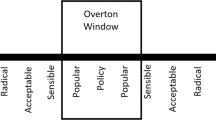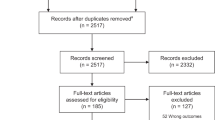Abstract
Background:
In 2005, the Israeli parliament passed the “law of dying patients” legalizing life and death decisions (do not resuscitate) in patients with life expectancy less than 6 months.
Objective:
To determine whether ethnic and religious backgrounds (both religion and religiosity) influence neonatologists’ attitudes in simulated clinical situations and opinions about the new law.
Design/Methods:
Prospective design, using standard questionnaire sent to all 155 board-certified practising Israeli Neonatologists. The questionnaire sought demographic and descriptive data, personal opinions regarding four simulated cases, and opinions about five statements regarding variables that may influence decision-making. Statistical analyses were by stepwise backward regression analysis, linear regression, and Kruskal–Wallis tests, wherever indicated.
Results:
Sixty-nine percent of the neonatologists replied, representing 27 NICUs out of the 29 NICUs in Israel. Most neonatologists would respect the wish of the family as long as it would be within the limits of the law or their personal beliefs. In stepwise regression analysis, religion, religiosity, age, gender, experience, or country of training did not influence significantly the neonatologists' opinions or their decisions in simulated practice. Most neonatologists felt that Ethical Committees had no role in NICUs and were seldom consulted. Most felt that likelihood of severe handicap was critical in decision-making. Issues related to treatment cost of a handicapped or dying infant, as well as impact of a handicapped infant on family's well-being, were not deemed critical.
Conclusion:
Israeli neonatologists appear to be a relatively homogeneous group in end-of-life decisions, regardless of their ethnic, religious, or religiosity background.
This is a preview of subscription content, access via your institution
Access options
Subscribe to this journal
Receive 12 print issues and online access
$259.00 per year
only $21.58 per issue
Buy this article
- Purchase on Springer Link
- Instant access to full article PDF
Prices may be subject to local taxes which are calculated during checkout
Similar content being viewed by others
References
http://www.health.gov.il/English/Services/Citizen_Services/Pages/DyingPatientRequest.aspx. Accessed 24 Sept 2017.
Steinberg Al, Sprung CL. The dying patient act, 2005: Israeli innovative legislation. Isr Med Assoc J. 2007;9:550–2.
Cuttini Ml, Nadai M, Kaminski M, Hansen G, de Leeuw R, Lenoir S, et al. End-of-life decisions in neonatal intensive care: physicians’ self-reported practices in seven European countries. EURONIC Study Group. Lancet. 2000;355:2112–8.
Rebagliato M, Cuttini M, Broggin L, Berbik I, de Vonderweid U, Hansen G, et al. EURONIC Study Group (European Project on Parents’ Information and Ethical Decision Making in Neonatal Intensive Care Units). Neonatal end-of-life decision making: physicians’ attitudes and relationship with self-reported practices in 10 European countries. JAMA. 2000;284:2451–9.
Doron D, Wexler ID, Shabtai, Corn BW. Israeli dying patient act: physician knowledge and attitudes. Am J Clin Oncol. 2014;27:597–602.
Bulow HH, Sprung CL, Baras M, Carmel S, Svantesson M, Benbenishty J, et al. Are religion and religiosity important to end of life decisions and patient autonomy in the ICU? The Ethicatt stusy. Intensive Care Med. 2012;38:1126–33.
Kunin J. Caring for the terminally ill: halachic approaches to withholding and withdrawing of therapy. J Jew Med Ethics Halacha. 2005;1:22–8.
American Medical Association: AMA Code of Medical Ethics: I, IV. www.ama-assn.org/sites/default/files/media-browser/code-of-medical-ethics-chapter-5.pdf. Accessed 6 September 2017.
Bowling A, 2009. Investigating health and health services. 3rd edn. Buckingham: Open University Press.
Authors contributions
Y.K. assisted in all aspects of the study conception, design and organization, data collection, and in writing the manuscript. A.B. assisted in data collection, analysis, and critical review of the manuscript; F.M. assisted in conception, analyzing the data, and in writing the manuscript. M.S. assisted in all aspects of the study conception, design and organization, data collection, and in writing the manuscript. All authors reviewed the manuscript for important intellectual contents and approved the final version. All authors agreed to be accountable for all aspects of the work.
Author information
Authors and Affiliations
Corresponding author
Ethics declarations
Conflict of interest
The authors declare that they have no conflict of interest.
Rights and permissions
About this article
Cite this article
Kasirer, M.Y., Mimouni, F.B., Bin-nun, A. et al. Opinions of Israeli neonatologists about life and death decisions in neonates. J Perinatol 38, 1101–1105 (2018). https://doi.org/10.1038/s41372-018-0102-2
Received:
Revised:
Accepted:
Published:
Issue Date:
DOI: https://doi.org/10.1038/s41372-018-0102-2
This article is cited by
-
Short-term outcomes of Jewish and Arab preterms: a population-based comparison
Journal of Perinatology (2021)



